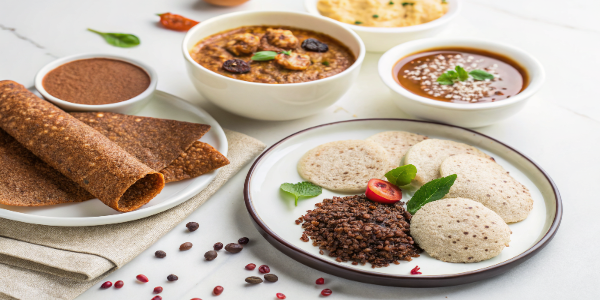PCOD (Polycystic Ovarian Disease) and PCOS (Polycystic Ovary Syndrome) are becoming more usual conditions in women across the globe. Both conditions are caused by hormonal imbalances and can have a major impact on a woman’s reproductive health.
This blog will explain both conditions clearly, examine how they are linked to metabolism, and effects on fertility and birth rates.
What is PCOD?
PCOD is a condition where a woman’s ovaries make many tiny eggs that don’t grow fully. These eggs turn into small cysts, which can disturb her periods and affect her hormones.
Causes:
Unhealthy diet
Sedentary lifestyle
Stress and anxiety
Hormonal imbalance
……….Common Symptoms:…………
Irregular periods
Acne and oily skin
Weight gain
Thinning of hair
Occasional infertility
What is PCOS
PCOS is a more severe condition where a woman’s ovaries produceexcessive amounts of male hormones. This prevents the body from releasing eggs normally. It can also lead to issues such as insulin resistance, weight gain, and prolonged inflammation in the body.
Causes:
Genetic predisposition
Insulin resistance
Chronic inflammation
Hormonal imbalance
Common Symptoms:
Missed or irregular periods
Hirsutism (unwanted hair growth)
Acne and hair thinning
Abdominal weight gain
Difficulty conceiving
Impact on natality ( fertility and birth rate)
1. Effect on Birth Rates and Fertility (Natality)
1. Disruption of Ovulation Ovulation is frequently absent or irregular in PCOD and PCOS. Ovulation reduces the chance of pregnancy because it is necessary for a natural conceiving
2. Although irregular, ovulation can still happen in PCOD. Basic lifestyle changes can help many women become pregnant. Anovulation, or the absence of ovulation, is more severe in PCOS. Without medical assistance, this may make natural conception challenging.
2. Hormonal Imbalance
An imbalance in hormones The inability to mature and ovulate eggs is caused by raised androgen levels.
This leads to: irregular menstruation, infertility, and in some situations, miscarriages.
3. Insulin Resistance and Obesity
These metabolic issues also disrupt reproductive hormones and lowerthe quality of eggs. Obesity also plays a part in
• Reduced fertility
• Increased risk during pregnancy
• Lower success rates with fertility treatments
Managing PCOD/PCOS for Better Fertility
1. Diet & Nutrition
Low-sugar, high-fiber, and low-GI foods
For example: ragi (finger millet) can be helpful for women with PCOD and PCOS.
Benefits of Ragi for PCOD and PCOS:
1. Low Glycemic Index: Ragi releases sugar slowly into the blood, which helps control blood sugar and insulin levels—very important in PCOS and PCOD.
2. Rich in Fiber: High fiber helps with digestion and weight loss, and keeps you feeling full for longer.
3. Gluten-Free: It’s a good alternative to wheat, especially for those with gluten sensitivity, which can sometimes worsen hormonal issues.
You can easily find healthy and tasty ragi-based products in the market.like:
• Apeato whizz ragi chips
• Apeato millet dosa
• Apeato multi millet pancake
https://www.google.com/gasearch?q=apeato&source=sh/x/gs/m2/5
Not only are PCOD and PCOS personal health issues, but they also have an impact on the number of births in society. Early detection and effective management of these issues can increase a woman’s chances of becoming pregnant. Many women can overcome these challenges and give birth to healthy children with the correct combination of medical assistance and healthy habits.

